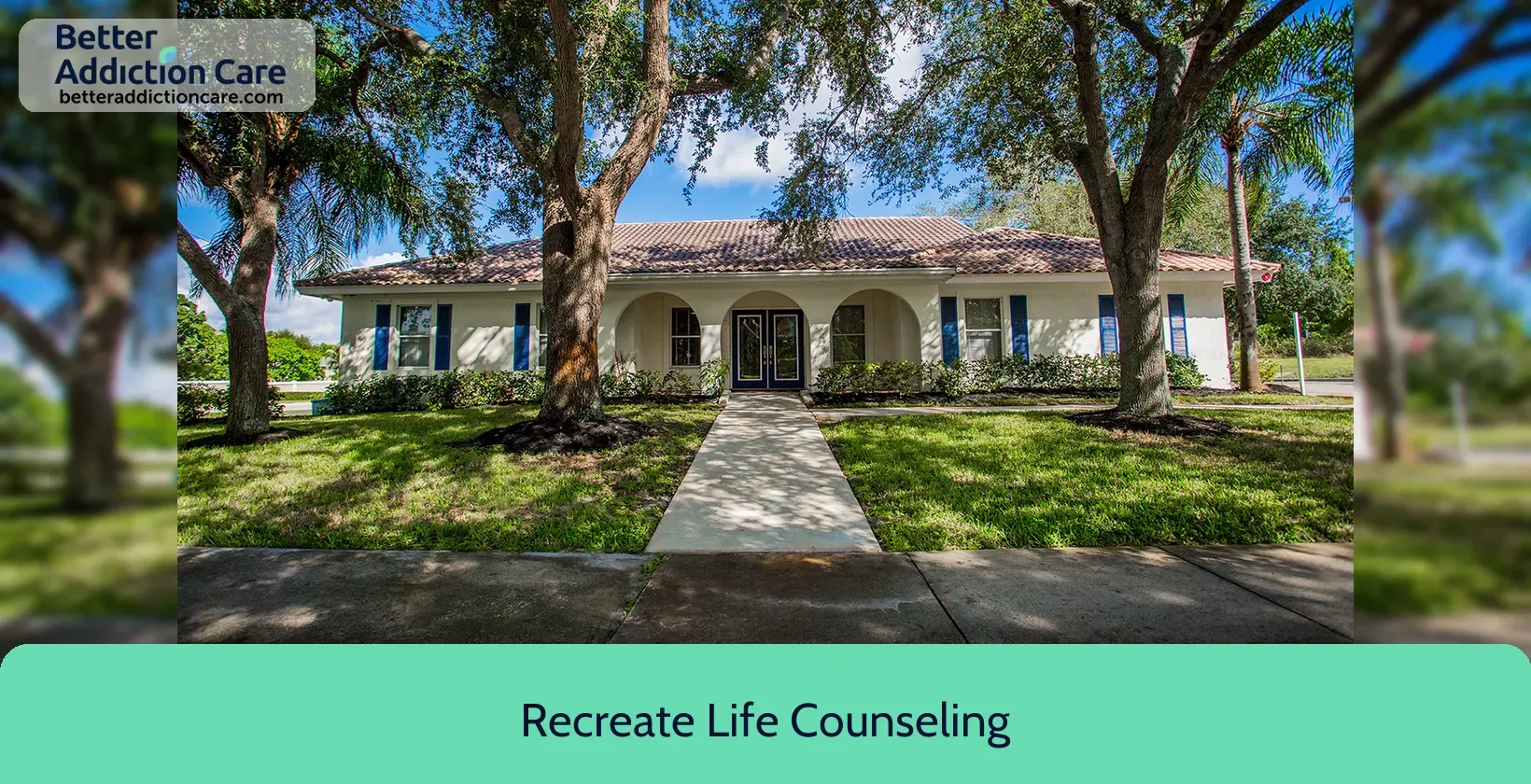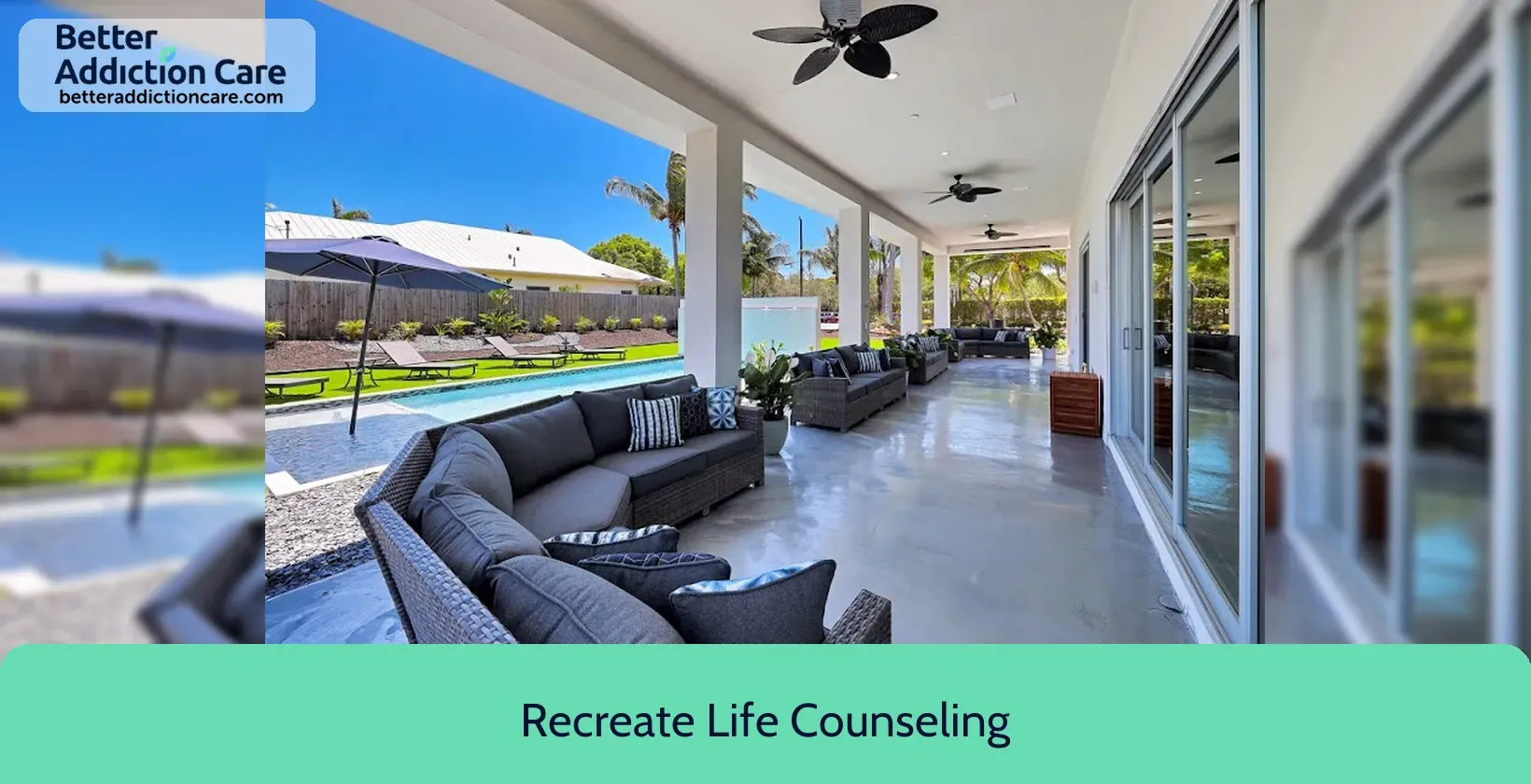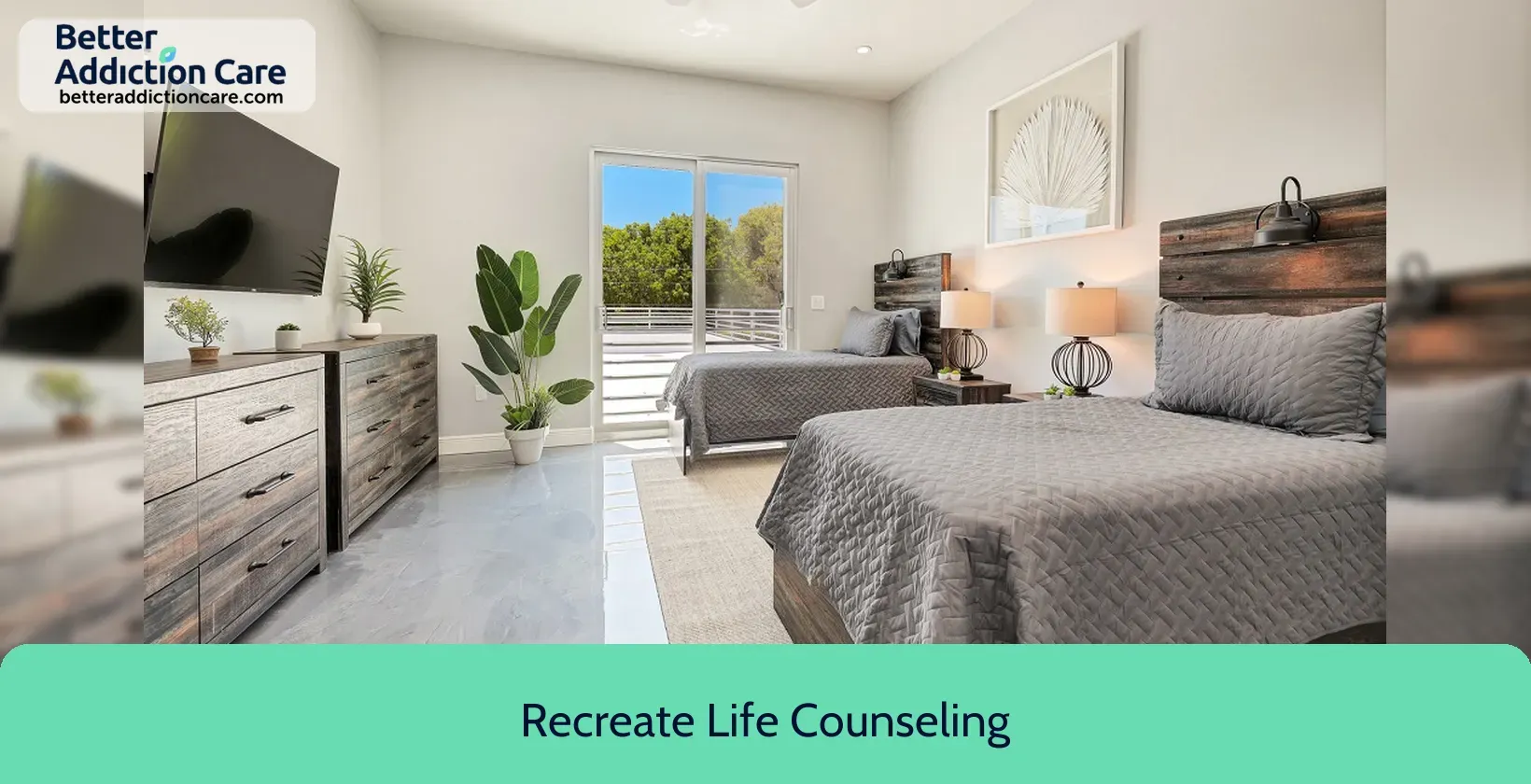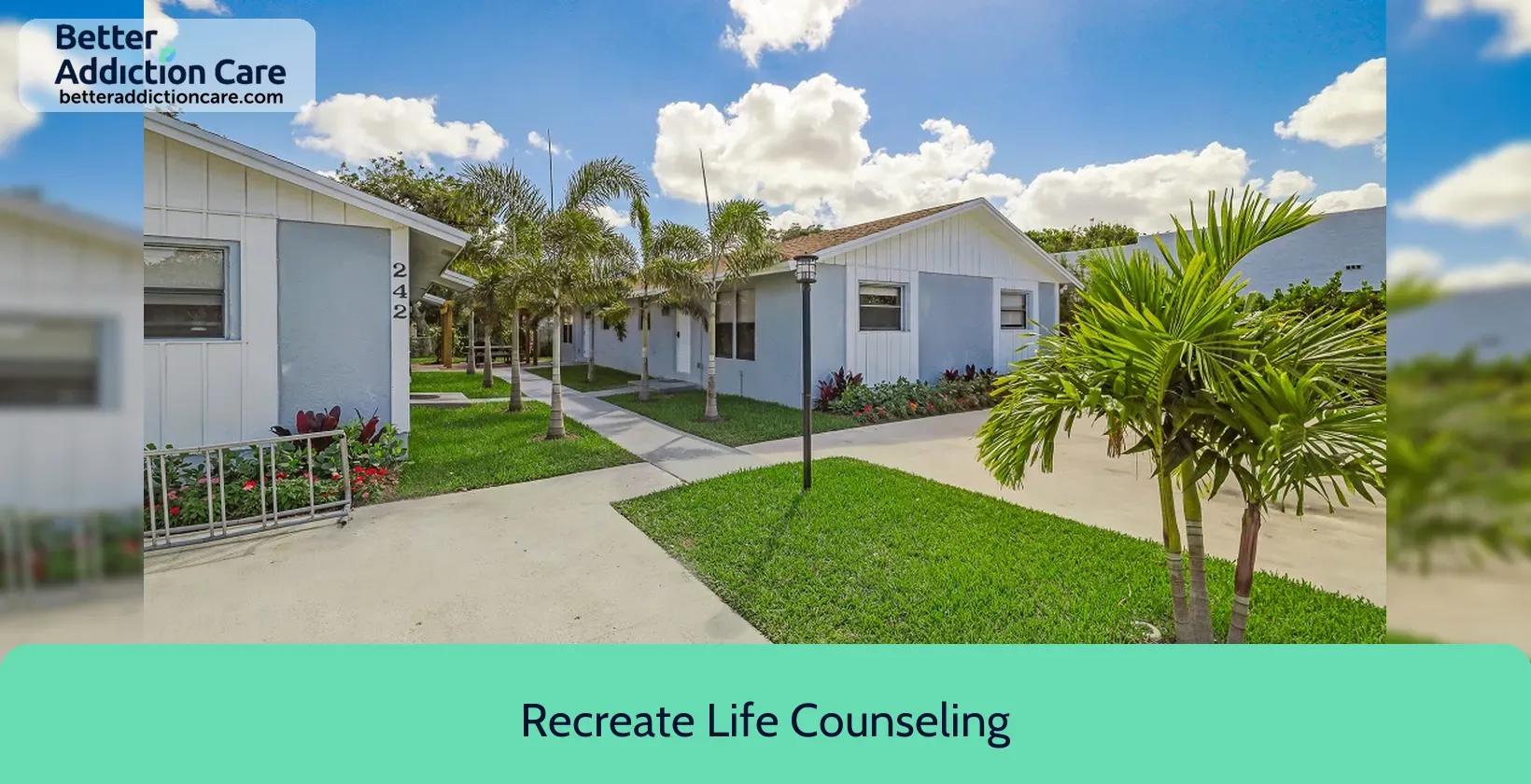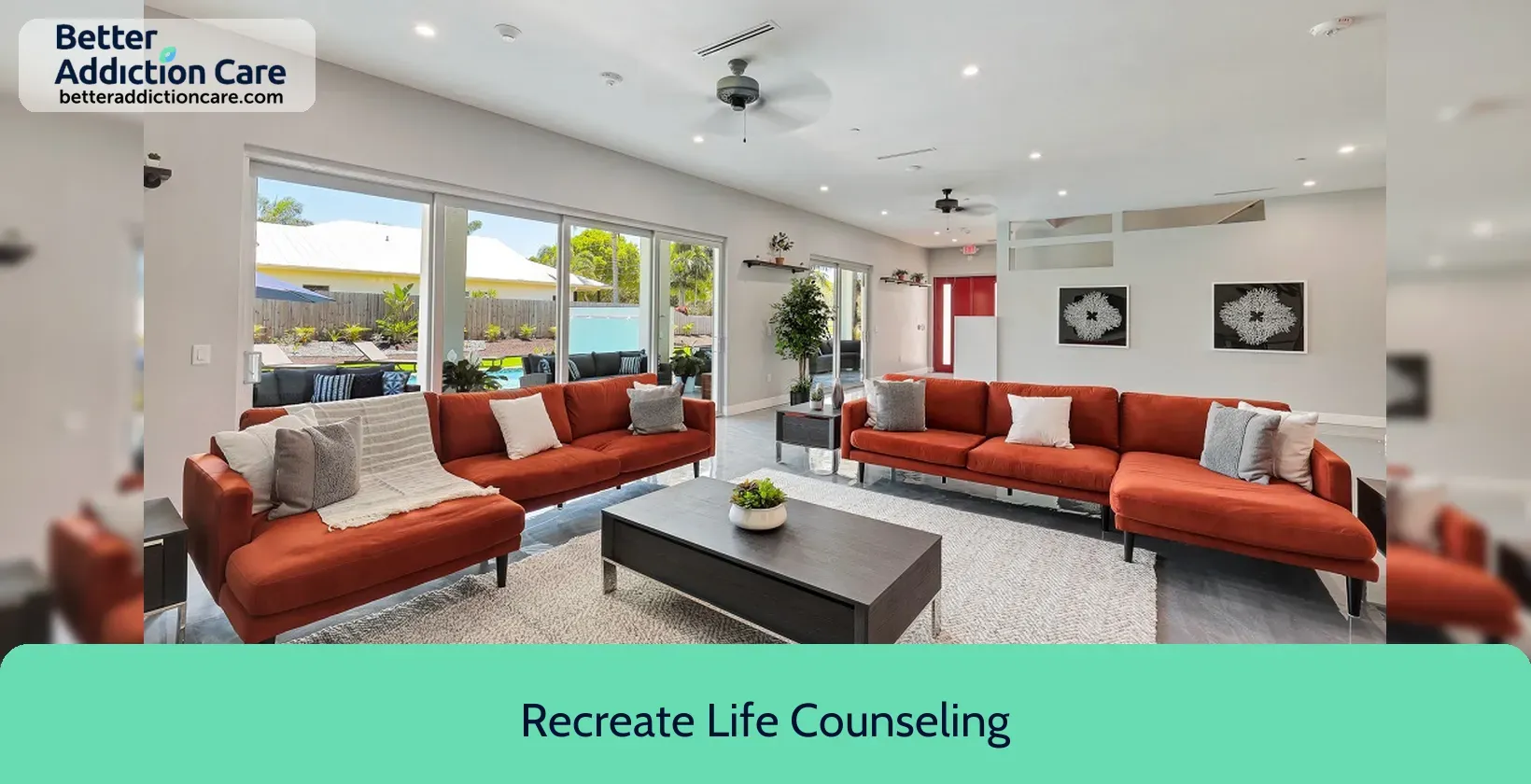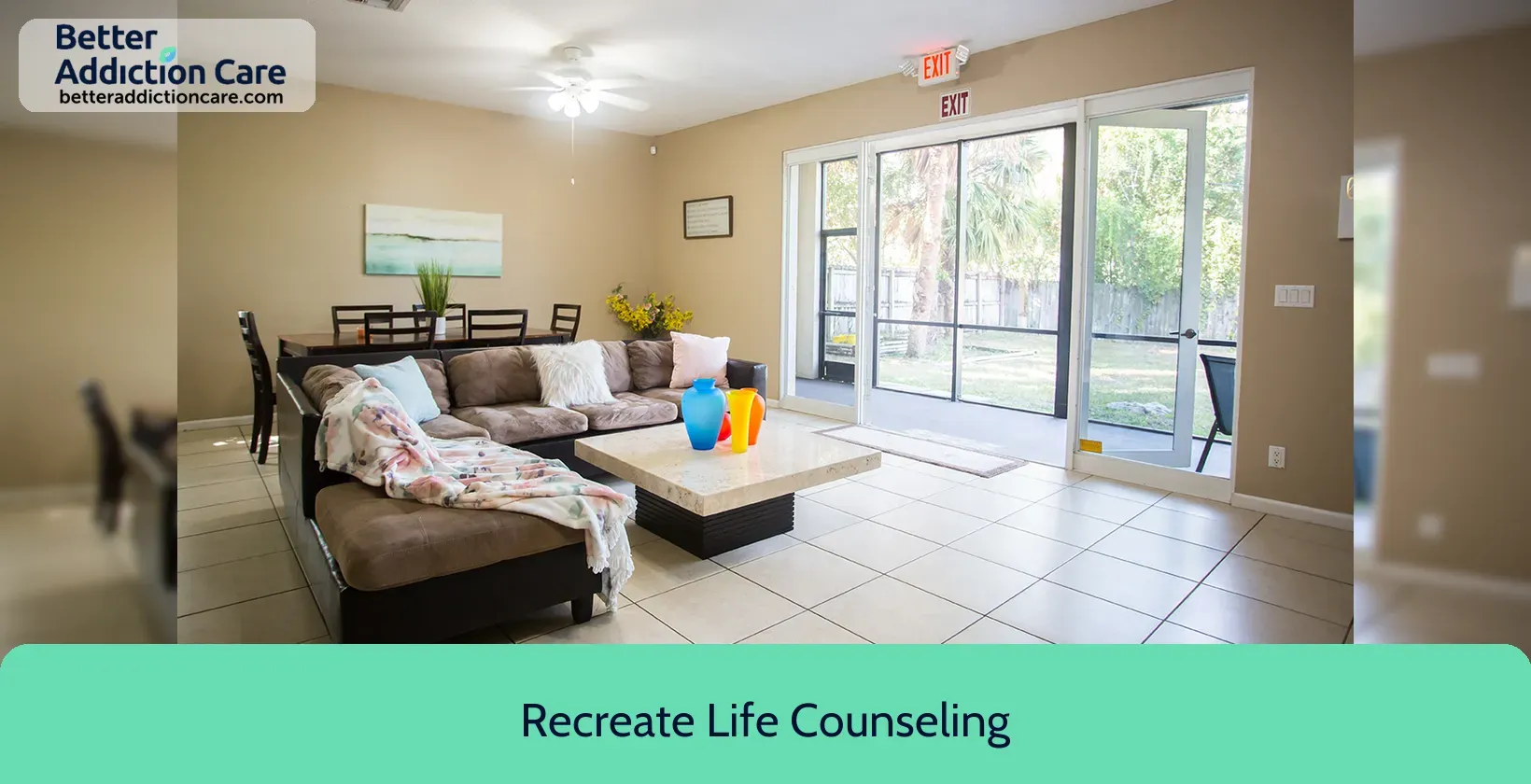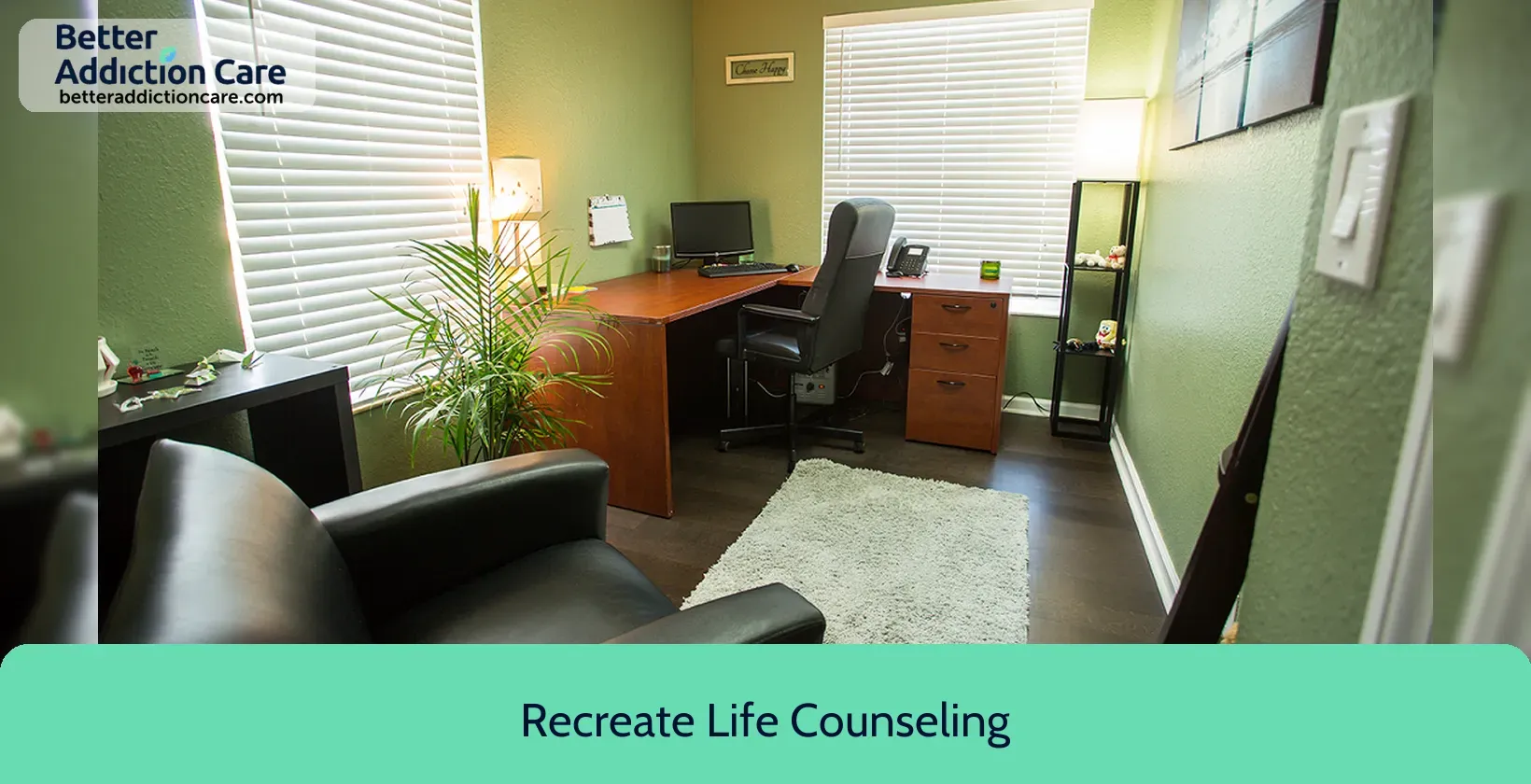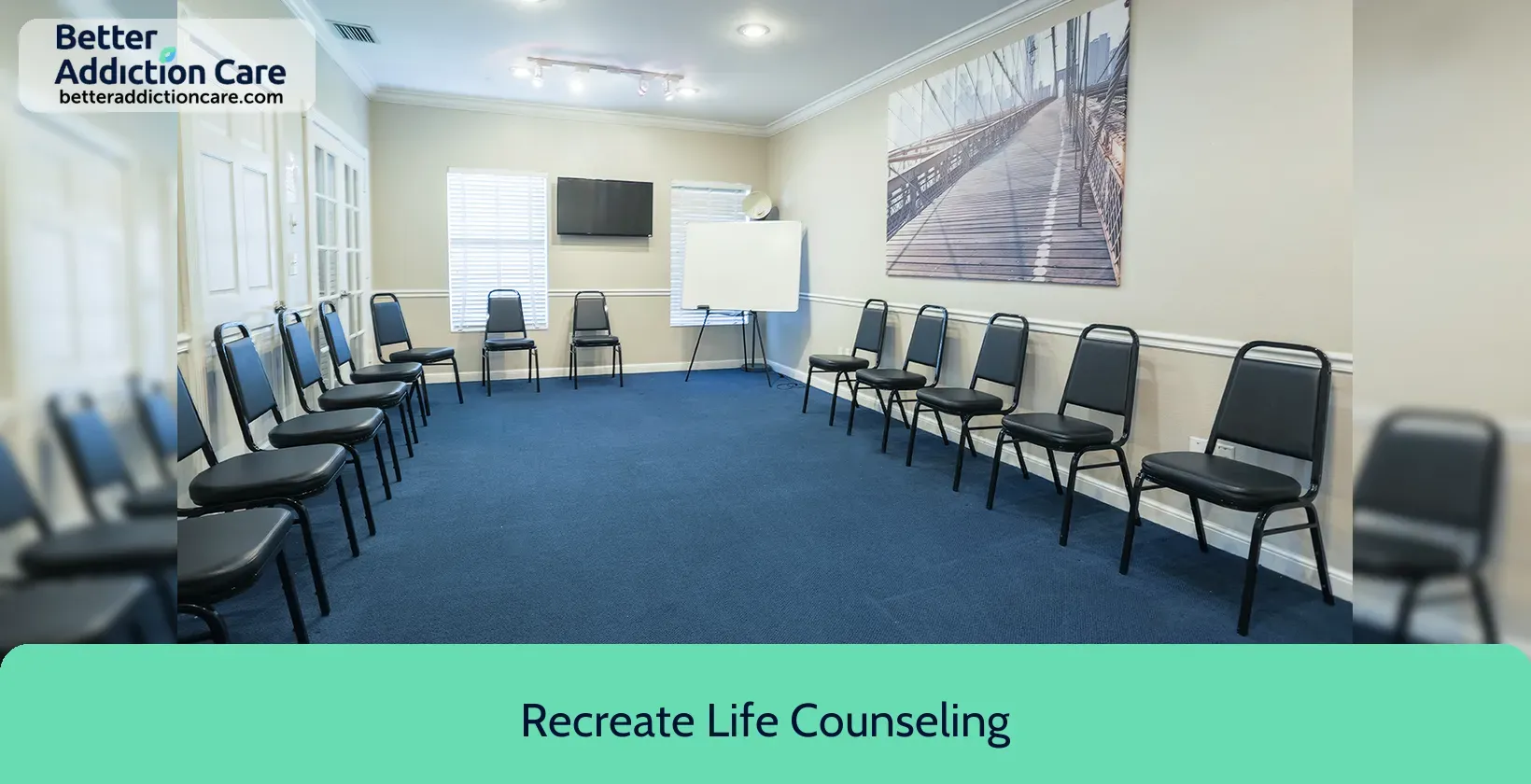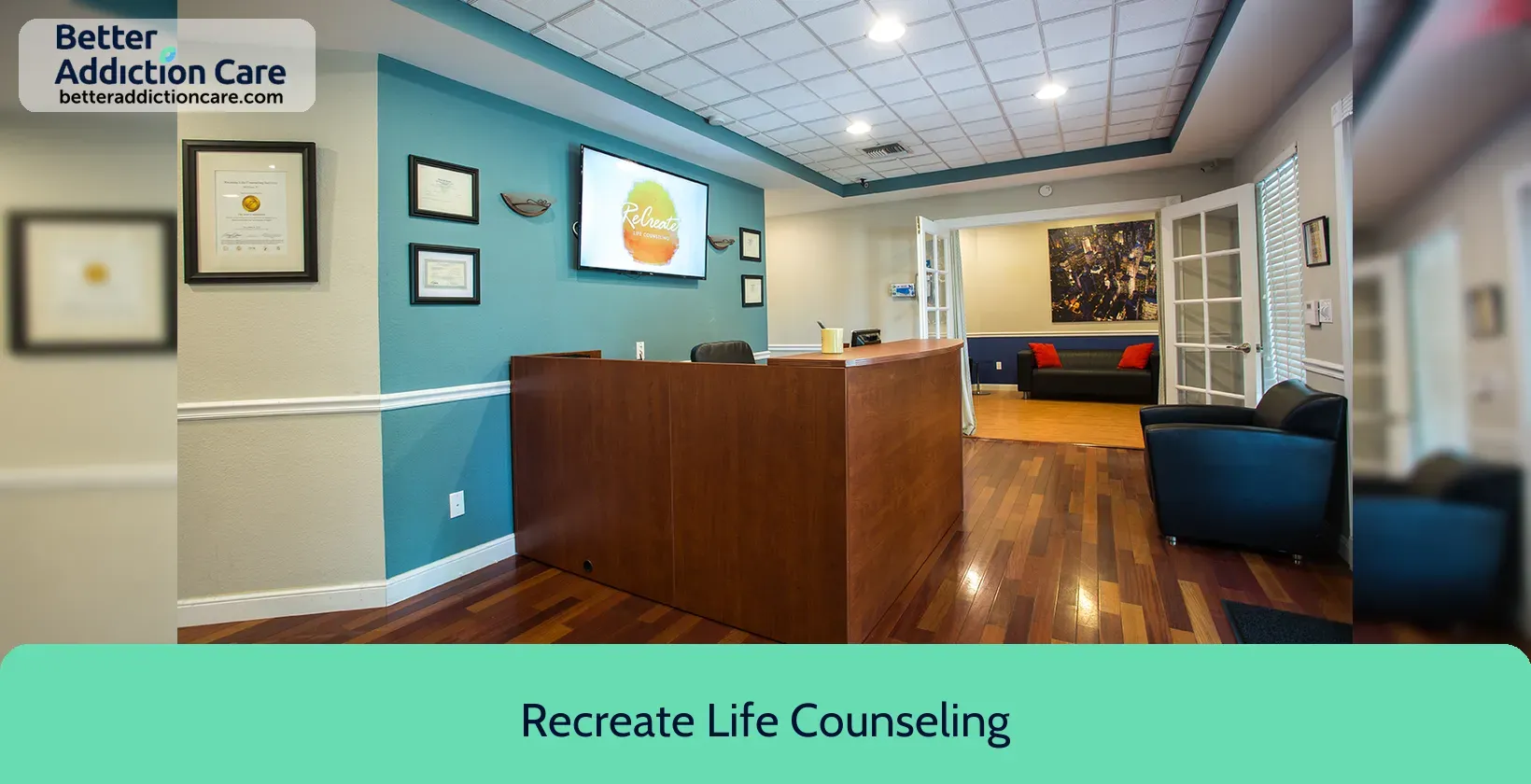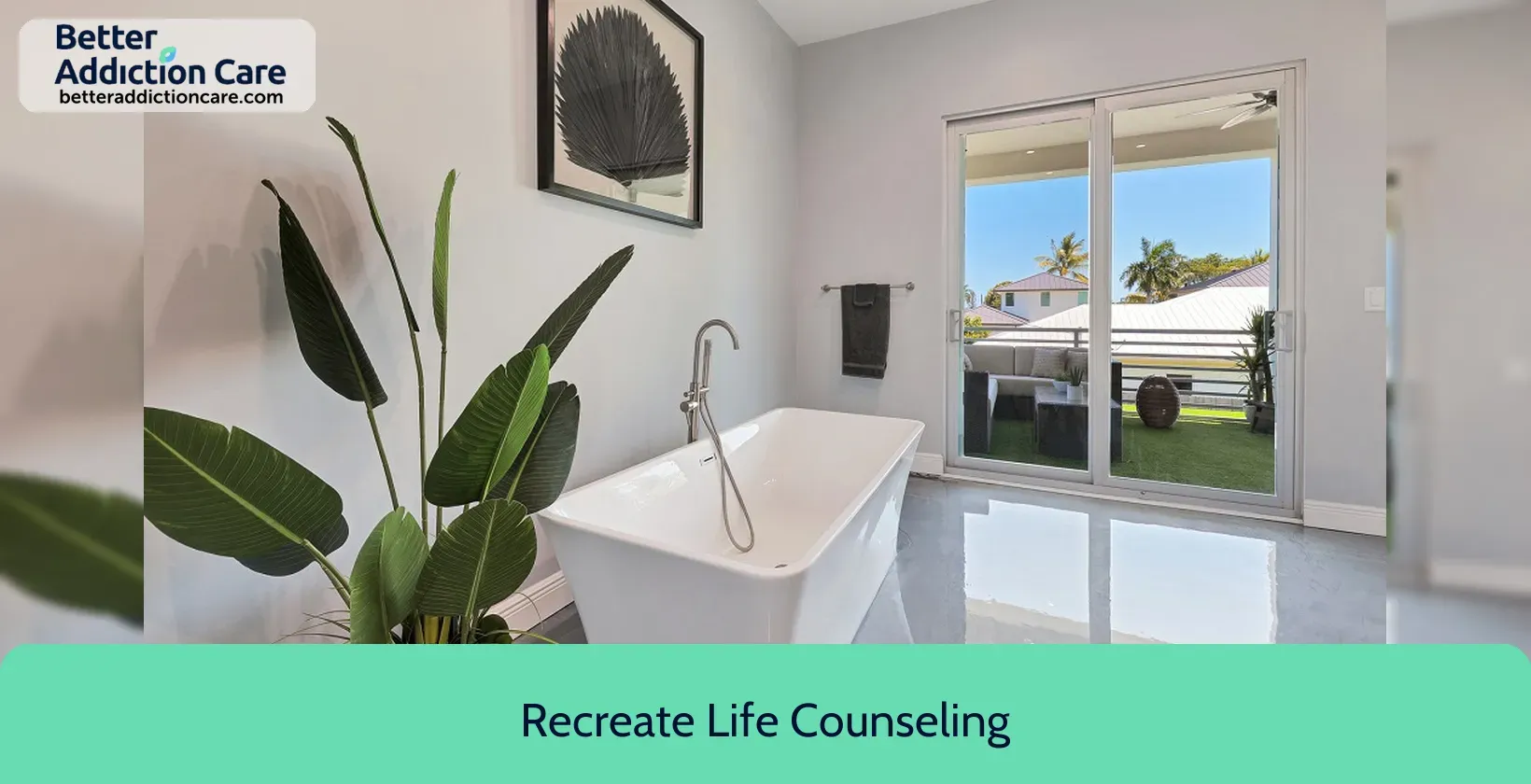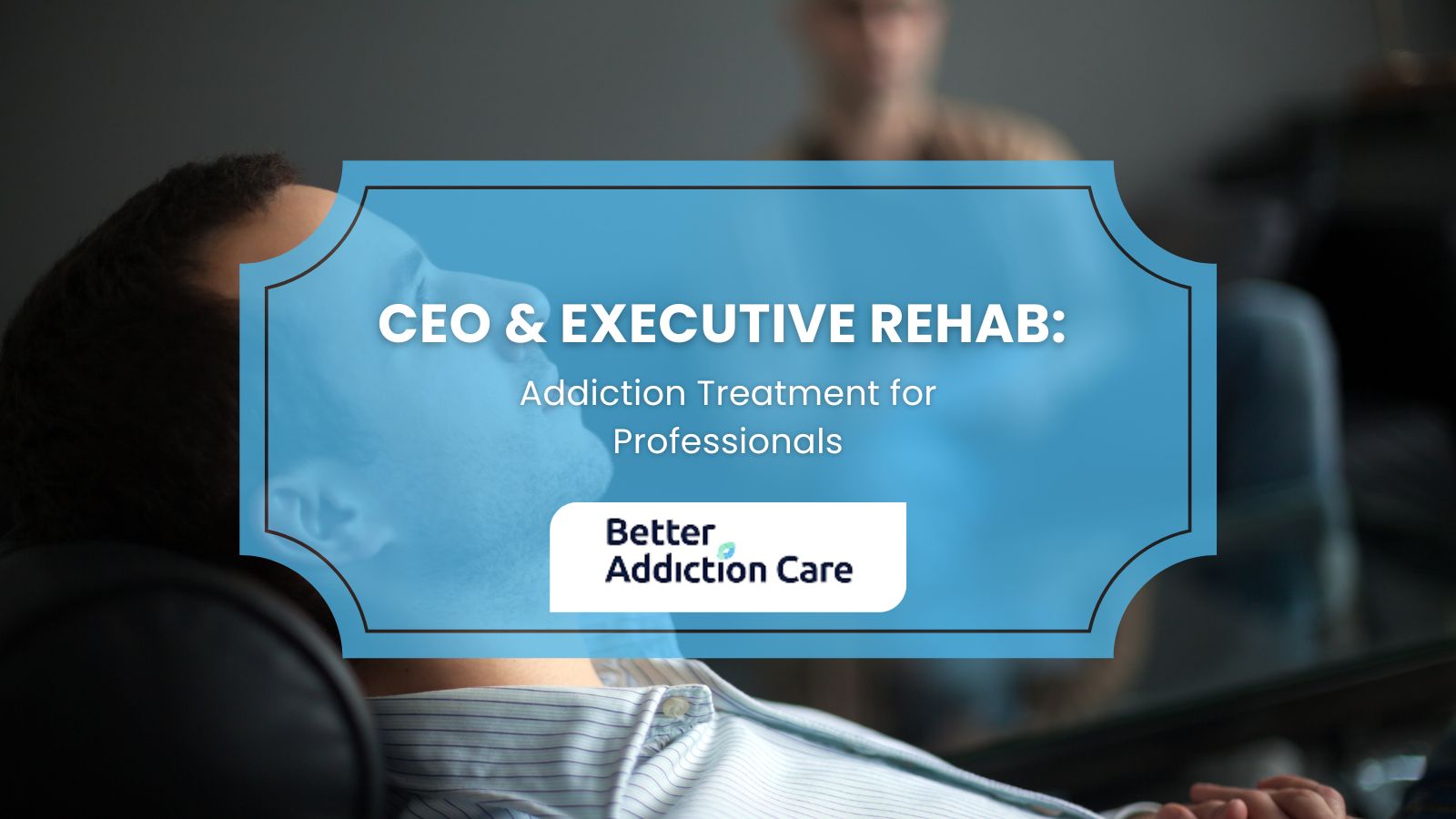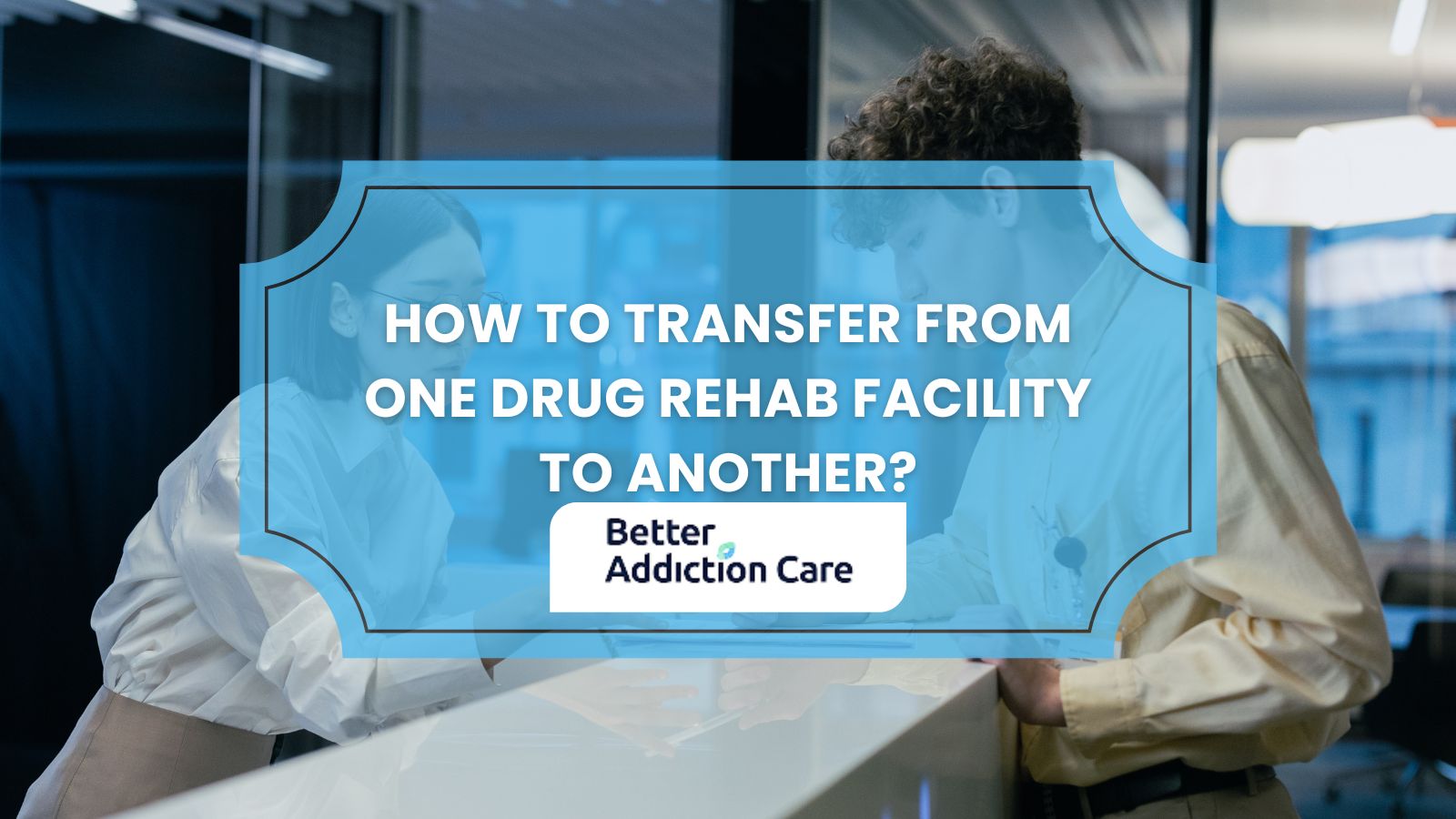Recreate Life Counseling
Overview
Recreate Life Counseling is an accredited substance abuse treatment center that provides outpatient detoxification, for men and women from 18+ years of age. As part of their special programs, Recreate Life Counseling treats active duty military and clients who have experienced trauma. To help patients achieve sobriety, Recreate Life Counseling provides intake assessments. Afterward, patients receive 12-step facilitation, individual psychotherapy, and cognitive behavioral therapy during treatment. Recreate Life Counseling is located in Lantana, Florida, providing treatment for people in Palm Beach County, accepting cash or self-payment, private health insurance, and sliding fee scale (fee is based on income and other factors).
Recreate Life Counseling at a Glance
Payment Options
- Cash or self-payment
- Private health insurance
- Sliding fee scale (fee is based on income and other factors)
- Daily
- Aetna
Assessments
- Comprehensive mental health assessment
- Comprehensive substance use assessment
Age Groups
- Adults
- Young adults
Operation
- Treatment duration
- Private for-profit organization
Highlights About Recreate Life Counseling
7.13/10
With an overall rating of 7.13/10, this facility has following balanced range of services. Alcohol Rehabilitation: 8.00/10, Drug Rehab and Detox: 6.00/10, Insurance and Payments: 6.93/10, Treatment Options: 7.58/10.-
Alcohol Rehabilitation 8.00
-
Treatment Options 7.58
-
Insurance and Payments 6.93
-
Drug Rehab and Detox 6.00
Accreditations
The Joint Commission:

The Joint Commission, previously known as JCAHO, is a nonprofit organization that accredits rehabilitation organizations and programs. Established in 1951, its mission is to enhance the quality of patient care and showcase excellence in healthcare delivery.
Effective date: 11/06/2016
Registration: 591535
State department of health:

State Licenses, issued by government agencies, authorize rehabilitation organizations to legally operate within designated geographical areas. The specific licenses required for operation are typically determined by both the nature of the rehabilitation program provided by the facility and its physical location.
Registration: 5047530854101
Treatment At Recreate Life Counseling
Treatment Conditions
- Mental health treatment
- Alcoholism
- Opioid Addiction
- Substance use treatment
- Co-occurring Disorders
Care Levels
- Intensive outpatient treatment
- Luxury Treatment
- Detoxification
- Aftercare
- Halfway house
Treatment Modalities
- 12-step facilitation
- Individual psychotherapy
- Cognitive Behavioral Therapy
- Family counseling
- Group counseling
Ancillary Services
Special Programs
- Active duty military
- Clients who have experienced trauma
Contact Information
Read our Most Recent Article About Drug Addiction
DISCLAIMER: The facility name, logo and brand are the property and registered trademarks of Recreate Life Counseling, and are being used for identification and informational purposes only. Use of these names, logos and brands shall not imply endorsement. BetterAddictionCare.com is not affiliated with or sponsored by Recreate Life Counseling.
